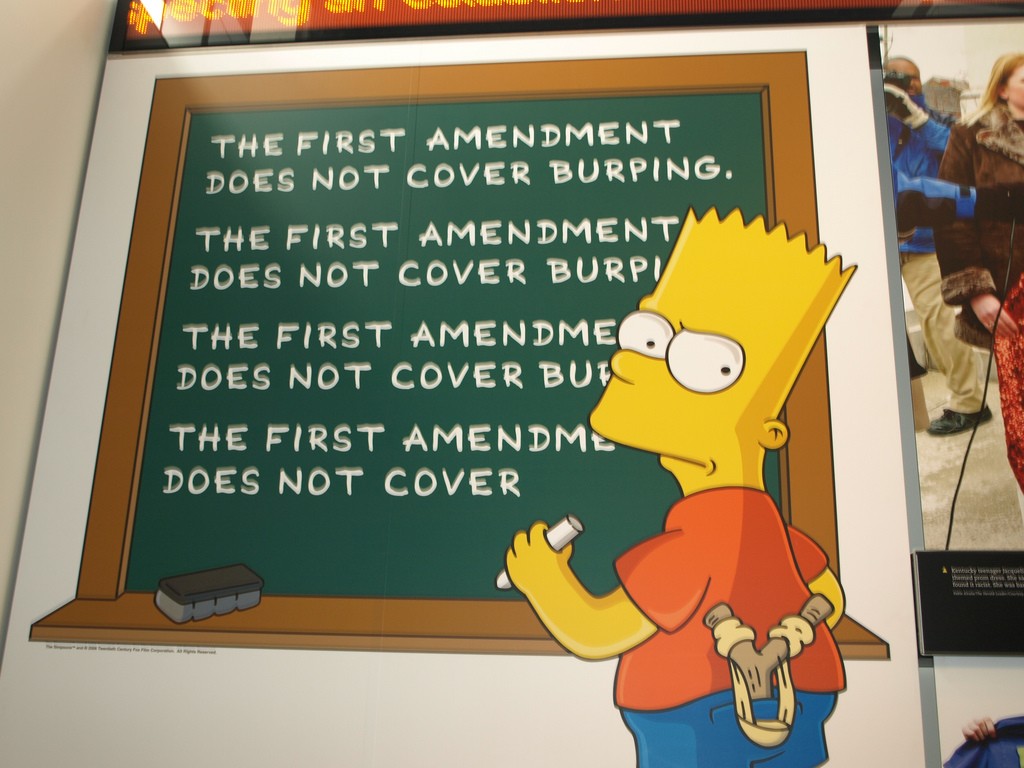No foolproof methods, but steps, resources to consider
Editor’s note: This is the second of a two-part series.
By Jody Kleinberg Biehl
University at Buffalo
The recent firings of three college newspaper advisers are a sobering reminder of how fragile newspaper advising jobs can be. Often advisers are not tenured faculty, but have renewable yearly contracts that can be denied at the whim of administrators unhappy about student coverage.
 This, said, Chris Evans, CMA adviser advocate chair, makes advisers vulnerable. Some – like recently fired Cheryl Reed of Northern Michigan — have come to believe that untenured faculty should not take advising jobs because it puts them too much at risk. Evans himself, said his job at the University of Vermont is on a contract basis, but he regularly takes steps to protect himself.
This, said, Chris Evans, CMA adviser advocate chair, makes advisers vulnerable. Some – like recently fired Cheryl Reed of Northern Michigan — have come to believe that untenured faculty should not take advising jobs because it puts them too much at risk. Evans himself, said his job at the University of Vermont is on a contract basis, but he regularly takes steps to protect himself.
What are some of those steps? What can advisers who want to push their students to be tough journalists, but who also want to make sure they keep their jobs do?
College Media Review asked veterans – Evans; Frank LoMonte, executive director of the Student Press Law Center, and several advisers who have been fired or been threatened with firings -– to help compile a list of tips for preventing run-ins with administrators over coverage from turning disastrous.
Please note, these are not foolproof methods, but they are starting points:
Get versed in the First Amendment and talk about it as often as possible to administrators.
“Find a way to regularly explain what your job is and what the role of the student press is,” Evans said. “Chances are that one of them [administrators] doesn’t understand what an adviser does. They might think you are an editor or that you copyedit everything. Remind and reinforce the message and your ethical and legal boundaries as an adviser.”
As part of that, he suggests making appointments with administrators at the start of the semester and explaining the limitations of your job. If from the start administrators know you don’t have control over what the students write, it might be easier later when the students print something controversial.
Know the Society of Professional Journalists’ Code of Ethics and evoke it whenever possible with students and administrators.
Hanging it up in the newsroom is a smart idea, too. (There is a free downloadable poster online).
“You have to be able to explain at the slightest prompt why [the Code] is necessary and why you don’t have prior review,” Evans said.
Join professional groups.
CMA, ACP, SPJ, AAUP – so that these groups can advocate for you and so you can have a posse of people who can help you articulate your role. Once you are in these groups, you should name-drop that you are to your administrators. Mention your memberships, your connections and that a wide journalistic tradition stands behind you. When an issue starts to get heated, but before it turns confrontational, Evans says, have senior members of these organizations call the administrators so the issue becomes part of a larger, national conversation.
Consider compromising on small, unimportant stories.
Veteran advisers know this is controversial. They admit wording this tip properly is tricky. But the idea is to compromise on little, meaningless stuff and hold firm on the big stuff. It’s basic human relations and reporter-source relations, they say.
“Try to find compromises. Compromise as you educate,” Evans said.
Get press freedom laws passed in your state.
Steve Listopad did it in North Dakota with the New Voices Act in April. The idea started as part Listopad’s civic and citizen journalism class at the University of Jamestown. Illinois, California and Oregon are the only other states with laws explicitly protecting student journalists and advisers. Is your state next?
Unleash the power of the press.
Let students voice their frustration in print. Sometimes when administrators see arguments in black and white, they back off. Engage press organizations to write letters of support. Organizations did this for Cheryl Reed, Patricia Roberts and James Compton.
Make sure students know that the program rests on them, not you.
If students get lazy or allow quality issues to sneak in or if they do things for shock value, make sure they know they are putting the school paper and possibly your job on the line.
Empower your students and help them understand their rights, said James Compton, who was fired this spring from his position as Muscatine Community College student newspaper adviser, but kept on as a professor. In protest, 12 current and former students at Muscatine filed a complaint in the U.S. District Court on May 5. In the complaint, the students say free speech is in jeopardy at Muscatine because administrators are trying to control the content of the Calumet newspaper. They cited a pattern of oppression since 2013 and said Compton was fired as retaliation for a Calumet story criticizing the way a faculty member spoke to a student journalist on the phone.
In an email, Compton said his first reaction was to get in touch with journalism organizations such as the Student Press Law Center, the Foundation for Individual Rights in Education, College Media Association, Associated Collegiate Press, Society of Professional Journalists, and the Iowa State Education Association.
Members of these groups bolstered him and helped him understand his case. In particular, he said a letter Evans wrote, saying his case ‘could be the most egregious and best-documented’ that he’s seen as an adviser advocate’ “does help me feel like this is real abuse of the First Amendment and not just an overreaction on my part or on the part of anyone else on the Calumet.”
Compton said that the best lesson advisers can offer students is to stand up for their rights or else student journalism will become watered down and irrelevant.

Jody Kleinberg Biehl is a clinical assistant professor in the English department at the University at Buffalo and director of the university’s journalism program. She also serves as advisor to the student newspaper, The Spectrum. Since Biehl became advisor in 2009-2010, The Spectrum has won 14 national media awards. It had not won any in its previous 63-year history. Before coming to UB, she worked in Berlin as an editor at Spiegel Online. At Der Spiegel, she was one of three journalists hired in 2003 to create an English-language website. The site, based in Berlin, now attracts millions of readers per month (www.spiegel.de/international). Before joining Der Spiegel, Ms. Biehl worked as a European correspondent for The San Francisco Chronicle and as a free-lance correspondent for USA TODAY and the Boston Globe. She also spent four years as a general assignment reporter for the Santa Rosa Press Democrat, a New York Times-owned paper in Northern California. She won numerous journalism awards during her time at the Press Democrat and in 2000 received an Arthur F. Burns fellowship, which took her to Berlin for three months as a reporter. She has reported from France, England, Poland, Portugal, Spain and Germany. She speaks fluent French and German.
